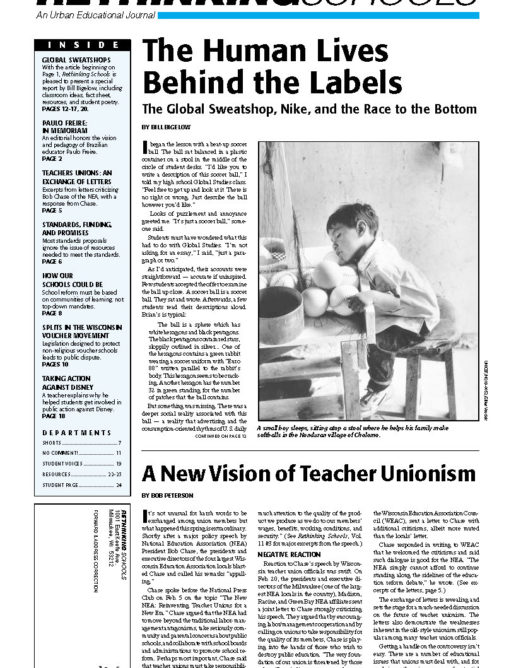Preview of Article:
Children Can Be Active Citizens of the World
Excerpts from a speech by Craig Kielburger, a student from Canada who has been active in building a campaign against child labor, at the 1996 convention of the American Federation of Teachers.

